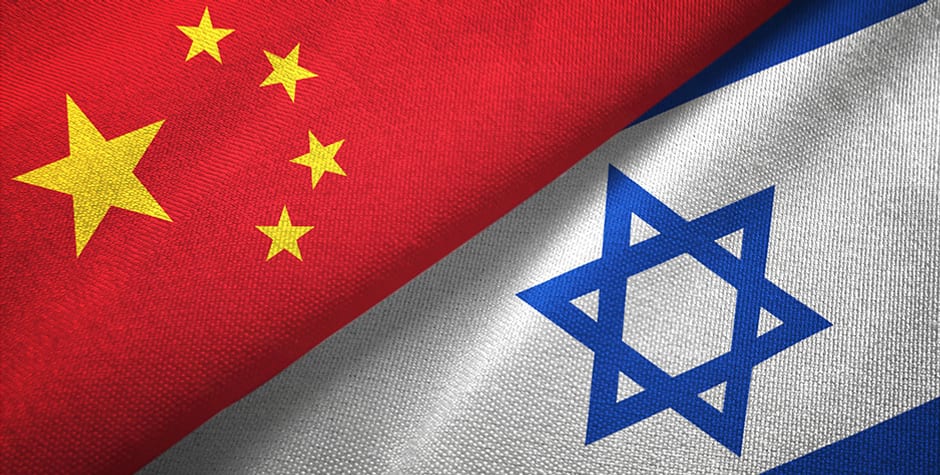China Seriously Wrong About International Law
Recently, the International Court of Justice (ICJ) heard statements from representatives from 49 U.N. Member States and 3 international organizations during the proceedings for the U.N. General Assembly’s Request for Advisory Opinion on the Legal Consequences arising from the Policies and Practices of Israel in the Occupied Palestinian Territory, including East Jerusalem.
One statement that caught some attention was from Ma Xinmin, legal advisor to China’s Foreign Ministry. Xinmin said that “[t]he Palestinian-Israeli conflict stems from Israel’s prolonged occupation of Palestinian territory and Israel’s long-standing oppression of the Palestinian people.” He also argued that “[i]n pursuit of their right to self-determination, the Palestinian people” have an “inalienable right” to “use force to resist foreign oppression.” He added, “Armed struggle in this context is distinguished from acts of terrorism. It is grounded in international law.”
What Xinmin did was nothing new. He resorted to a tactic commonly used by Israel’s enemies in the lawfare against Israel. They mix correct basic principles of international law with incorrect statements about other laws to arrive at a false conclusion. Those unfamiliar with international law then read or hear such a statement and believe that the entire statement is legally correct.
According to Xinmin, because the Palestinian people have a right to self-determination, they not only have a right to use force against Israel but also to use whatever means of warfare they choose. This position is contradictory to the Law of Armed Conflict.
First, according to the Mandate for Palestine (a legal document), the 1907 Hague Regulations, and the Geneva Conventions of 1949, Israel is not a foreign occupier of the so-called “Palestinian territory.” As such, the right to self-determination in this specific context is riddled with complicated legal and policy questions. Despite such issues, Israel is not a foreign occupier since Israel cannot unlawfully occupy its own territory. But even if for the sake of argument, one hypothetically presumes that a right to self-determination exists, any unprovoked armed attack against Israel from the Gaza Strip or the so-called West Bank to acquire territory is still an unlawful use of force.
Arguing against Israel’s acquisition of territory in 1967, the U.N. General Assembly resolutions state that acquisition of territory by use of force is inadmissible. While we dispute that that principle applies to territory acquired during the use of (lawful) defensive force against an aggressor, it clearly applies to the aggressive (unlawful) force (here the use of force by Hamas, Palestinian Islamic Jihad (PIJ), and other armed groups in the Gaza Strip and the so-called West Bank). Hence, the Palestinian armed struggle to acquire territory is an unlawful use of force prohibited under Article 2(4) of the U.N. Charter. The only way one may acquire any territory is by peaceful negotiations, not by the use of force. As such, even if the Palestinian armed groups were not raping women, murdering civilians, and butchering babies but were using lawful means of warfare, their use of force would still be unlawful.
Second, assuming again the argument that a Palestinian right to self-determination exists and further incorrectly assuming that Israel is occupying “Palestinian territory,” even then China is outlandishly wrong in saying that attacks by Hamas and PIJ are justified. Xinmin’s point that “[a]rmed struggle in this context is distinguished from acts of terrorism” (emphasis added) and that “[i]t is grounded in international law” is simply a deceptive way of saying what Hamas and PIJ are doing is not terrorism.
If that were the case, then the Geneva Conventions, which primarily govern armed conflicts, would be rendered not only superfluous but incorrect statements of law as they strictly prohibit the very actions that China deems as “inalienable rights.” The absurdity in the Chinese statements would become clear if one were to ask Xinmin if his statement was also true for Israel – meaning, should Israel also disregard the Law of Armed Conflict?
The question is not whether an armed struggle is distinguishable from acts of terrorism. Rather, the real question is whether the actions of Hamas and PIJ terrorists (i.e., raping women and intentionally murdering civilians) qualify as legitimate means of armed struggle or acts of terrorism. The answer is clear.
For further clarity, there are two types of armed conflicts: international armed conflict (IAC) and non-international armed conflict (NIAC). Both armed conflicts are governed by legal rules, many of which are now considered customary. There is no armed conflict – whether IAC, NIAC, or a resistance against an alleged foreign occupation – in which raping and intentionally killing civilians is lawful. In both, rules of engagement unequivocally prohibit hostage-taking, raping, murdering civilians, indiscriminately firing rockets toward civilian population centers, etc.
Accordingly, Hamas’ and PIJ’s actions are unlawful means of engaging in an armed struggle, regardless of whether their struggle or cause is lawful or unlawful. As discussed above, however, even if the struggle were legitimate, territory cannot be acquired by the aggressive use of force.
The ACLJ remains committed to defending Israel from baseless attacks by other countries. We recently sent a legal brief to 50 nations after South Africa unjustly accused Israel of genocide. We will never stop advocating for America’s ally.
